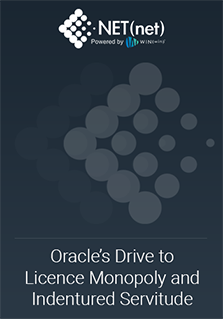If HP was a coyote, it would seemingly chew off its three good legs, leaving its one bad leg still stuck in the trap.
Leg 1
You may remember the Carly Fiorina fiasco? The embattled former leader of HP was fired by HP’s board after persisting disagreements about how to execute HP’s strategy could no longer be reconciled. It played out like a bad reality TV show until she was eventually voted off the island in disgrace. Her consolation prize? About a gazillion dollars in severance pay. Nice moves all around, board – NOT.
Leg 2
Patricia Dunn was then named as Chairperson of the Board, and presided over a spying scandal, designed to drive out media leaks, but aimed at HP’s own board members and other personnel, involving the reading of emails and the reviewing of phone records (allegedly including personal accounts), and other such sordid details. Against all odds, Spygate was even more dumbfounding than the Fiorina fiasco and resulted again in widespread and sharp criticism aimed at HP’s board.
Leg 3
Then there’s the firing of Mark Hurd. Hurd was, by many accounts, widely successful as a CEO by financial measures, but there were plenty of good reasons to fire him. Despite these good reasons, the board seemingly hid behind Hurd’s alleged fudging of some information on expense reports as the reason there was a breakdown in trust, rendering Hurd no longer effective as a leader. Please. What was the board’s position on this? To pay Hurd a gazillion dollars in severance. Again, well played… NOT.
Leg 4 – still stuck in the trap!
With a board that continues to be notorious for its dysfunction, it’s hard to see how HP can continue to measure up with IBM and Oracle in the race for technology stack supremacy. Perhaps they have a grand plan of an SAP acquisition that will suddenly make the Apotheker selection make sense, but at this point, the HP board seems to continue to be a huge liability for the firm.
Recent moves at HP suggest that it sort of gets the hint about its dysfunctional board. The recent addition of former Oracle executive Ray Lane as its non-executive chairman was a move in the right direction. Ray Lane will bring a wealth of expertise beneficial to HP as an organization, including his deal making ability, his intimate knowledge about emerging competitor Oracle, and especially his applications experience as HP considers stronger moves into this market.
If HP doesn’t acquire SAP, it will have to dramatically intensify partnerships with SAP and other major software companies to look for new ways to lower Oracle’s influence inside its joint customer base. HP’s partnership with Microsoft has been waning as of late, with the most recent announcement that HP will shelve plans to deliver a Windows based tablet, focusing instead on producing tables that use its own webOS acquired from Palm.
Comments
re: PalmOS - I'm still scratching my head over this one
by Scott Braden on Wed, October 20, 2010 - 11:40am
I think it gives them some flexibility outside of Windows when it comes to smart phones and tablets. There are still a lot of complaints on Windows for slow start-up times, heavy processing that drains battery life, and lots of bloated software applications. webOS (HP dropped the Palm branding) supposedly offers a greatly reduced start-up time, long battery life, and a lean, simplified platform from which to launch many third party applications. Having said all that, HP just released a Windows based tablet :S
by Steven Zolman on Sun, October 24, 2010 - 9:32pm
NET(net)’s Website/Blogs/Articles and other content is subject to NET(net)’s legal terms offered for general information purposes only, and while NET(net) may offer views and opinions regarding the subject matter, such views and opinions are not intended to malign or disparage any other company or other individual or group.

















